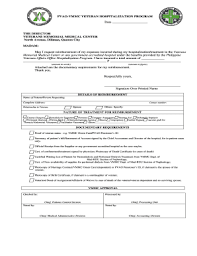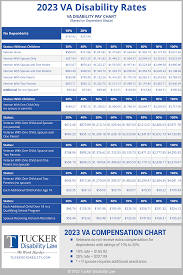Title: New Veterans Benefits for 2021: Enhancing Support for Those Who Served
Introduction:
As we enter a new year, it is essential to highlight the new benefits and programs that have been introduced to support our veterans in 20
The United States government remains committed to ensuring that those who have served their country receive the care, assistance, and recognition they deserve. In this article, we will explore some of the new veterans’ benefits introduced this year, showcasing the continued efforts to enhance support for our brave servicemen and women.
Expanded Mental Health Services:
Recognizing the importance of mental health support for veterans, significant strides have been made in expanding mental health services. The Department of Veterans Affairs (VA) has increased funding to improve access to mental health care, including counseling services and treatment for conditions such as post-traumatic stress disorder (PTSD). These additional resources aim to address the unique challenges faced by veterans and ensure they receive the necessary support.
Improved Education Benefits:
Veterans seeking educational opportunities can now benefit from improved education programs. The Forever GI Bill has been expanded with provisions such as increased funding for tuition assistance, housing allowances, and expanded eligibility criteria. These enhancements aim to make higher education more accessible and affordable for our veterans, enabling them to pursue their academic goals after their military service.
Enhanced Telehealth Services:
The COVID-19 pandemic has accelerated the adoption of telehealth services across various sectors, including healthcare. To ensure veterans’ continued access to vital medical care during these challenging times, the VA has expanded telehealth services significantly. This allows veterans living in rural or remote areas or those with limited mobility to receive medical consultations from the comfort of their homes. It also reduces barriers such as long travel distances and wait times.
Increased Disability Compensation:
In recognition of the sacrifices made by veterans who have sustained service-related disabilities, disability compensation rates have been increased in 20
These adjustments aim to provide veterans with fair and adequate compensation for the physical and emotional toll their service has taken. The increased rates reflect a commitment to ensuring a decent quality of life for those who have served.
Expanded Caregiver Support:
Caregivers play a crucial role in supporting veterans with significant injuries or illnesses. To further assist these caregivers, the VA has expanded its caregiver support programs in 20
This includes additional financial assistance, training, counseling, and respite care services to alleviate the burdens faced by caregivers and ensure their well-being.
Conclusion:
The introduction of new veterans’ benefits in 2021 demonstrates the ongoing commitment of the United States government to support those who have honorably served our nation. From improved mental health services and education benefits to enhanced telehealth services, increased disability compensation, and expanded caregiver support programs, these initiatives aim to address critical areas of need for veterans and their families.
It is essential for veterans to stay informed about these new benefits and take advantage of the resources available to them. If you are a veteran or know someone who is, we encourage you to reach out to the Department of Veterans Affairs or other veteran service organizations for more information on how these new benefits can positively impact your life or that of a loved one. Let us continue honoring our veterans by ensuring they receive the support they deserve in 2021 and beyond.
Frequently Asked Questions: New Veterans Benefits for 2021
- What are the new veterans benefits in 2021?
- How do I apply for veterans benefits in 2021?
- Are there any changes to veterans benefits in 2021?
- What are the eligibility requirements for veterans benefits in 2021?
- Is there additional financial assistance available to veterans in 2021?
- What health care services are covered under the new VA benefits package for 2021?
- How can I find out more information about veteran’s benefits in 2021?
What are the new veterans benefits in 2021?
In 2021, several new veterans benefits have been introduced to enhance support for those who have served. Some of these benefits include:
- Expanded Mental Health Services: The Department of Veterans Affairs (VA) has increased funding for mental health care, providing improved access to counseling services and treatment for conditions like post-traumatic stress disorder (PTSD).
- Improved Education Benefits: The Forever GI Bill has been expanded with provisions such as increased funding for tuition assistance, housing allowances, and expanded eligibility criteria. These enhancements aim to make higher education more accessible and affordable for veterans.
- Enhanced Telehealth Services: The VA has significantly expanded telehealth services, allowing veterans to receive medical consultations remotely. This is particularly beneficial for those living in rural or remote areas or those with limited mobility.
- Increased Disability Compensation: Disability compensation rates have been increased to provide fair and adequate compensation for veterans with service-related disabilities. These adjustments reflect a commitment to ensuring a decent quality of life for those who have served.
- Expanded Caregiver Support: The VA has expanded caregiver support programs, offering additional financial assistance, training, counseling, and respite care services to caregivers supporting veterans with significant injuries or illnesses.
It is important for veterans to stay informed about these new benefits and take advantage of the resources available to them. They can reach out to the Department of Veterans Affairs or other veteran service organizations for more information on how these benefits can positively impact their lives or the lives of their loved ones.
How do I apply for veterans benefits in 2021?
Applying for veterans benefits in 2021 involves a few essential steps. Here’s a general guide to help you get started:
Determine Eligibility: Before applying for any veterans benefits, it’s important to determine your eligibility. Eligibility criteria can vary depending on the specific benefit or program you are interested in. Visit the official website of the Department of Veterans Affairs (VA) or contact your local VA office to understand the eligibility requirements for the benefits you seek.
Gather Required Documents: Once you have identified the benefits you may be eligible for, gather all necessary documentation to support your application. This can include discharge papers (DD-214), medical records, marriage certificates, birth certificates, and any other relevant documentation specific to the benefit you are applying for.
Choose a Method of Application:
a) Online: Many veterans benefits applications can be completed online through the VA’s eBenefits portal (www.ebenefits.va.gov). Create an account and follow the instructions provided to submit your application electronically.
b) In-Person: If you prefer to apply in person or require assistance with the application process, visit your local VA office or Veterans Service Organization (VSO). A representative will guide you through the application process and help ensure that all necessary documents are included.
c) By Mail: Some applications can be submitted by mail. Download the appropriate application form from the VA website, complete it accurately, and mail it along with supporting documents to the designated address.
Seek Assistance if Needed: Applying for veterans benefits can sometimes be complex and overwhelming. If you encounter difficulties or have questions during the application process, reach out to a Veterans Service Officer (VSO) or contact a local VA office for guidance and support.
Follow Up on Your Application: After submitting your application, it is important to stay informed about its progress. Keep track of any confirmation numbers or reference codes provided during the application process. You can also check the status of your application online through the eBenefits portal or contact the VA directly for updates.
Remember, specific benefits may have additional requirements or unique application processes. It is advisable to research and consult with a Veterans Service Officer or visit the official VA website (www.va.gov) to obtain accurate and up-to-date information on applying for the specific benefits you are seeking.
Are there any changes to veterans benefits in 2021?
Yes, there have been some changes to veterans benefits in 20
- Here are a few notable updates:
- Cost-of-Living Adjustment (COLA) Increase: Veterans receiving disability compensation and pension benefits saw a COLA increase of 1.3% starting from December 2020. This adjustment aims to account for the rising cost of living and provide veterans with increased financial support.
- Expanded Access to VA Home Loans: The Department of Veterans Affairs has made changes to the VA Home Loan program, making it easier for veterans to access this benefit. The loan limits have been lifted, allowing eligible veterans to borrow more without requiring a down payment in certain areas.
- Expansion of Agent Orange Presumptive Conditions: The VA has expanded the list of presumptive conditions related to Agent Orange exposure during the Vietnam War. Three new conditions were added: bladder cancer, hypothyroidism, and Parkinson’s-like symptoms.
- Improved Appeals Process: The VA implemented the Appeals Modernization Act in 2019, but it continues to be refined in 2021. This streamlined process aims to provide veterans with faster decisions and improved communication regarding their disability claims appeals.
- Expanded Mental Health Services: As mental health remains a significant concern for veterans, the VA has increased funding for mental health services in recent years. This includes enhanced access to counseling services, treatment for PTSD and other mental health conditions, and additional resources aimed at addressing the unique challenges faced by veterans.
It’s important for veterans and their families to stay informed about these changes by regularly checking official sources such as the Department of Veterans Affairs website or consulting with veteran service organizations that can provide up-to-date information on any further developments or adjustments to benefits programs in 2021.
What are the eligibility requirements for veterans benefits in 2021?
In 2021, the eligibility requirements for veterans benefits vary depending on the specific benefit or program being sought. However, there are some general eligibility criteria that veterans typically need to meet. It’s important to note that eligibility requirements can be complex and may differ based on factors such as length of service, discharge status, and service-connected disabilities. Here are some key eligibility factors to consider:
- Military Service: Generally, to qualify for veterans benefits, an individual must have served in the active military, naval, or air service and been discharged under conditions other than dishonorable. The specific length of service required may vary depending on the benefit being sought.
- Service-Connected Disabilities: For certain benefits like disability compensation or healthcare services through the Department of Veterans Affairs (VA), it is necessary for veterans to have a service-connected disability. This means that the disability must have been caused or aggravated by their military service.
- Character of Discharge: Veterans with a dishonorable discharge are typically not eligible for most VA benefits. Other types of discharges such as honorable, general under honorable conditions, or other-than-honorable discharges may affect eligibility for certain benefits.
- Income and Asset Limitations: Some VA benefits, such as pension programs or needs-based healthcare services, have income and asset limitations. These requirements ensure that benefits are targeted towards those with limited financial resources.
- Length of Service Requirements: Certain programs like the Post-9/11 GI Bill education benefit may have specific length-of-service requirements, including minimum active duty periods after September 11th, 2001.
It is important to note that eligibility requirements can change over time due to new legislation or policy updates. It is recommended that veterans consult with the Department of Veterans Affairs (VA) or other veteran service organizations to get accurate and up-to-date information regarding their specific circumstances and eligibility for various benefits in 2021.
Is there additional financial assistance available to veterans in 2021?
Yes, there is additional financial assistance available to veterans in 20
- The United States government has introduced several programs and initiatives aimed at providing financial support to veterans and their families. Here are a few examples:
- Economic Impact Payments: As part of the COVID-19 relief efforts, eligible veterans may have received economic impact payments or stimulus checks. These payments were intended to provide financial assistance during the pandemic.
- Increased Disability Compensation: In 2021, disability compensation rates for service-connected disabilities have been increased. This adjustment ensures that veterans receive fair and adequate compensation for the physical and emotional toll their service has taken.
- VA Home Loan Program: The VA Home Loan program continues to provide significant financial benefits to eligible veterans. This program offers low-interest mortgage loans with no down payment requirement, making homeownership more accessible for veterans.
- Education Benefits: Veterans can take advantage of education benefits such as the Post-9/11 GI Bill and the Forever GI Bill, which provide financial support for higher education or vocational training programs.
- Small Business Loans: For veterans interested in starting or expanding their own businesses, there are various small business loan programs specifically designed for them. These loans offer favorable terms and conditions to support veteran entrepreneurship.
It’s important for veterans to stay informed about the specific eligibility requirements and application processes for these programs. The Department of Veterans Affairs (VA) website, local VA offices, or veteran service organizations can provide detailed information on the various financial assistance options available in 2021.
What health care services are covered under the new VA benefits package for 2021?
Under the new VA benefits package for 2021, the Department of Veterans Affairs (VA) provides a comprehensive range of healthcare services to eligible veterans. These services include:
- Preventive Care: The VA emphasizes preventive care to promote overall wellness among veterans. This includes routine check-ups, vaccinations, and screenings for various conditions such as cancer, diabetes, and hypertension.
- Primary Care: Veterans have access to primary care services that encompass general medical care, management of chronic conditions, and coordination of referrals to specialists when necessary.
- Specialty Care: The VA offers specialized medical services in various fields such as cardiology, dermatology, orthopedics, mental health, oncology, and more. These services aim to address specific medical needs and provide comprehensive treatment options.
- Mental Health Care: The VA places significant emphasis on mental health support for veterans. Services include counseling for post-traumatic stress disorder (PTSD), depression, anxiety, substance abuse treatment programs, and suicide prevention initiatives.
- Women’s Health Services: The VA provides comprehensive healthcare services tailored specifically for women veterans. This includes gynecological care, maternity care coordination, breast and cervical cancer screenings, and other gender-specific healthcare needs.
- Telehealth Services: To improve accessibility and convenience for veterans across the country, the VA has expanded telehealth services. Through video consultations or phone calls with healthcare professionals, veterans can receive medical advice, consultations for minor ailments or follow-up appointments without leaving their homes.
- Prescription Medications: Eligible veterans receive prescription medications at no or reduced cost through the VA’s pharmacy benefits program. The VA also provides mail-order pharmacy services to ensure convenient access to medications.
- Rehabilitation Services: Veterans who require physical rehabilitation or occupational therapy can access these services through the VA’s rehabilitation programs aimed at restoring functionality and improving quality of life.
- Geriatric Care: The VA offers specialized healthcare services for older veterans, including geriatric assessments, long-term care options, and support for caregivers.
It is important to note that eligibility for these services may vary based on factors such as service-connected disabilities, income level, and other qualifying criteria. Veterans are encouraged to contact their local VA medical facilities or visit the VA’s official website to determine their eligibility and access the specific healthcare services they require.
How can I find out more information about veteran’s benefits in 2021?
To find more information about veteran’s benefits in 2021, you can follow these steps:
- Visit the Department of Veterans Affairs (VA) website: The official website of the VA is a valuable resource for information on veteran’s benefits. It provides comprehensive details about various programs, services, and eligibility criteria. The website is regularly updated with the latest information and can be accessed at www.va.gov.
- Contact your local VA Regional Office: Each state has a VA Regional Office that can provide personalized assistance and guidance regarding veteran’s benefits. They can answer specific questions, help with applications, and provide information on available resources in your area. You can find contact details for your local VA Regional Office on the VA’s website.
- Reach out to Veteran Service Organizations (VSOs): VSOs such as the American Legion, Veterans of Foreign Wars (VFW), Disabled American Veterans (DAV), and others are dedicated to advocating for veterans’ rights and providing support. These organizations often have knowledgeable staff who can assist you in understanding and accessing the benefits you are entitled to.
- Attend local veteran outreach events: Many communities organize outreach events specifically for veterans where representatives from different organizations are present to provide information and answer questions about benefits. Keep an eye out for such events in your area or check with local community centers or veteran support groups.
- Consult with a Veterans Benefits Counselor: If you require more personalized guidance or have complex questions regarding veteran’s benefits, consider seeking assistance from a Veterans Benefits Counselor. These professionals specialize in navigating the intricacies of veterans’ benefits and can provide expert advice tailored to your specific circumstances.
Remember that it is always advisable to consult official sources such as the Department of Veterans Affairs or trusted organizations when seeking information about veteran’s benefits. They will ensure that you receive accurate and up-to-date details regarding the programs available to you as a veteran in 2021.




